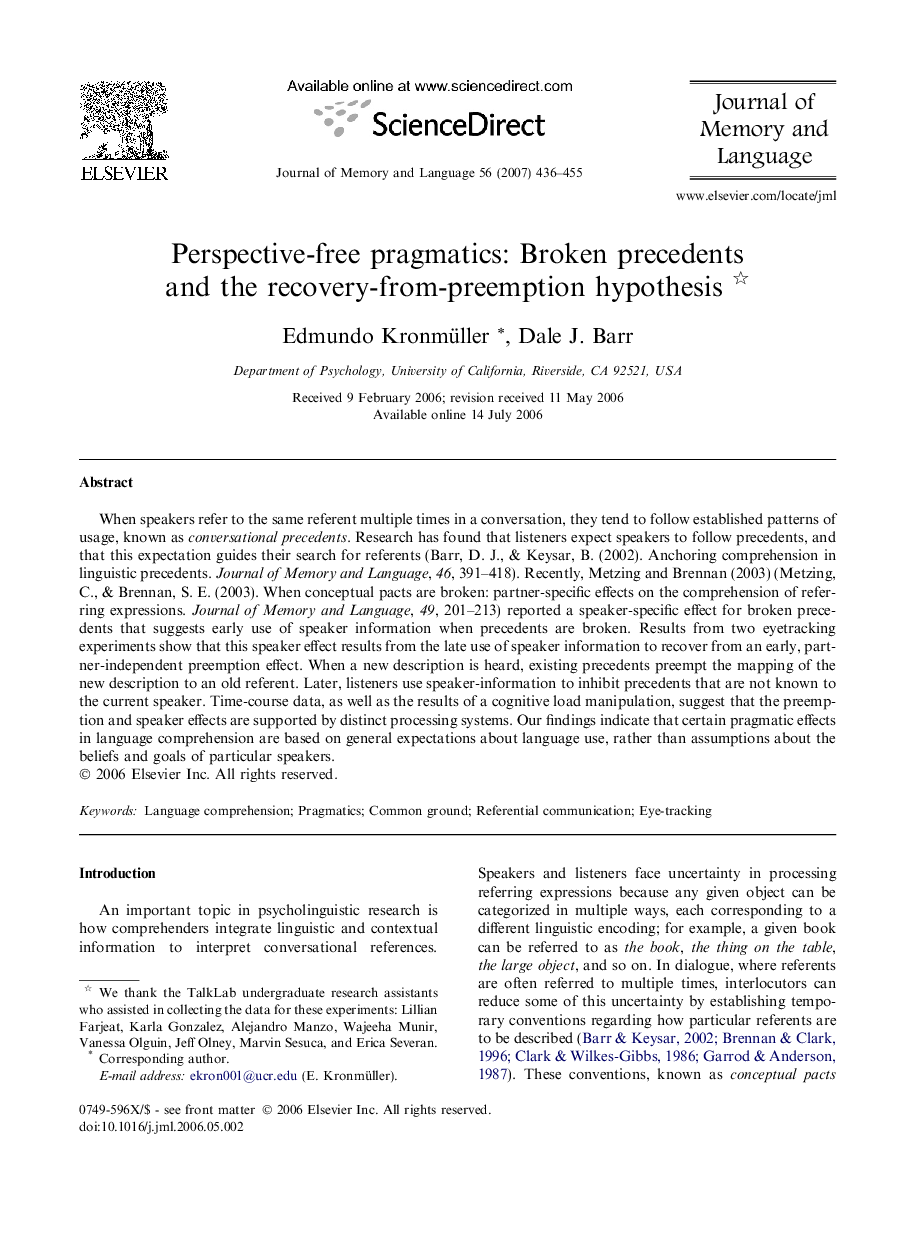| Article ID | Journal | Published Year | Pages | File Type |
|---|---|---|---|---|
| 932255 | Journal of Memory and Language | 2007 | 20 Pages |
When speakers refer to the same referent multiple times in a conversation, they tend to follow established patterns of usage, known as conversational precedents. Research has found that listeners expect speakers to follow precedents, and that this expectation guides their search for referents (Barr, D. J., & Keysar, B. (2002). Anchoring comprehension in linguistic precedents. Journal of Memory and Language, 46, 391–418). Recently, Metzing and Brennan (2003) (Metzing, C., & Brennan, S. E. (2003). When conceptual pacts are broken: partner-specific effects on the comprehension of referring expressions. Journal of Memory and Language, 49, 201–213) reported a speaker-specific effect for broken precedents that suggests early use of speaker information when precedents are broken. Results from two eyetracking experiments show that this speaker effect results from the late use of speaker information to recover from an early, partner-independent preemption effect. When a new description is heard, existing precedents preempt the mapping of the new description to an old referent. Later, listeners use speaker-information to inhibit precedents that are not known to the current speaker. Time-course data, as well as the results of a cognitive load manipulation, suggest that the preemption and speaker effects are supported by distinct processing systems. Our findings indicate that certain pragmatic effects in language comprehension are based on general expectations about language use, rather than assumptions about the beliefs and goals of particular speakers.
